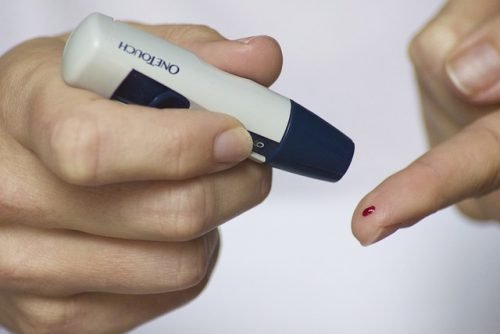Can I Reverse Diabetes?
Imagine a life where you have the power to reverse diabetes. It may sound too good to be true, but recent scientific advancements are challenging the notion that diabetes is an irreversible condition. With groundbreaking research, innovative treatments, and a shift towards holistic approaches, more and more people are discovering the possibility of reclaiming their health and wellbeing. In this article, we will explore the question on everyone’s mind: can I reverse diabetes? Get ready, because the answer might just surprise you.
Understanding Diabetes
Diabetes is a chronic health condition that affects millions of people worldwide. It occurs when the body is unable to properly regulate blood sugar levels, leading to elevated levels of glucose in the bloodstream. This happens due to a combination of factors, including the body’s inability to produce or use insulin effectively. Insulin is a hormone that helps transport glucose from the bloodstream into the cells to be used for energy.
What is diabetes?
Diabetes is a metabolic disorder characterized by high blood sugar levels. There are two main types of diabetes: type 1 and type 2. In type 1 diabetes, the body’s immune system mistakenly attacks and destroys the insulin-producing cells in the pancreas. As a result, individuals with type 1 diabetes require insulin injections to survive. Type 2 diabetes, on the other hand, is mainly caused by a combination of genetic and lifestyle factors. In type 2 diabetes, the body either resists the effects of insulin or doesn’t produce enough insulin to maintain normal blood sugar levels.
Types of diabetes
As mentioned earlier, there are two main types of diabetes: type 1 and type 2. Additionally, there is a condition called gestational diabetes, which occurs during pregnancy and usually resolves after childbirth. Type 1 diabetes is often diagnosed in childhood or adolescence, whereas type 2 diabetes is more commonly diagnosed in adulthood. It is essential to distinguish between the two types as the management and treatment approaches may vary.
Causes of diabetes
The causes of diabetes can vary depending on the type. Type 1 diabetes is believed to be an autoimmune disease, where the body’s immune system mistakenly attacks the insulin-producing cells. The exact cause is not fully understood, but genetic and environmental factors may play a role. Type 2 diabetes, on the other hand, is primarily caused by lifestyle factors such as obesity, physical inactivity, and poor dietary choices. Genetics also play a role, as individuals with a family history of type 2 diabetes are at higher risk.
Managing Diabetes
Managing diabetes is crucial to maintaining overall health and preventing complications. While diabetes is a chronic condition, it can be effectively managed with a combination of lifestyle changes, medication, and regular monitoring of blood sugar levels.
Importance of diabetes management
Proper diabetes management is vital in order to keep blood sugar levels within a target range and minimize the risk of complications. When diabetes is not well-managed, it can lead to a variety of health problems, including cardiovascular disease, kidney damage, nerve damage, and vision loss. By actively managing diabetes, you can significantly reduce the risk of these complications and enjoy a better quality of life.
Monitoring blood sugar levels
Monitoring blood sugar levels is a key component of diabetes management. Regular monitoring allows you to determine how certain foods, physical activity, medications, and lifestyle factors impact your blood sugar levels. There are various ways to monitor blood sugar, including fingerstick testing, continuous glucose monitoring systems, and flash glucose monitoring. Your healthcare team can provide guidance on the most appropriate method for you.
Healthy eating habits
Adopting healthy eating habits is vital for diabetes management. A well-balanced diet rich in nutrient-dense foods can help regulate blood sugar levels, manage weight, and improve overall health. Focus on consuming plenty of fruits, vegetables, whole grains, lean proteins, and healthy fats. It is also important to limit the intake of processed foods, sugary beverages, and foods high in saturated and trans fats. Working with a registered dietitian can provide personalized guidance on meal planning and portion control.
Engaging in physical activity
Physical activity plays a crucial role in diabetes management. Regular exercise helps improve insulin sensitivity and allows for better blood sugar control. Aim for a combination of aerobic exercise (such as walking, swimming, or cycling) and strength training exercises. Find activities that you enjoy and make them a regular part of your routine. Remember to consult with your healthcare provider before starting any exercise program to ensure it is safe and appropriate for you.
Medications for diabetes management
In addition to lifestyle changes, many individuals with diabetes may require medications to help manage their blood sugar levels. The type of medication prescribed will depend on the type of diabetes and individual needs. Medications for type 1 diabetes typically include insulin injections or the use of insulin pumps. Type 2 diabetes medications can include oral medications, injectable medications, and insulin therapy. It is essential to take medications as prescribed and maintain regular communication with your healthcare provider to ensure their effectiveness.

Reversing Diabetes
The question of whether diabetes can be reversed is often asked, especially in the case of type 2 diabetes. While it is challenging to completely reverse diabetes, making certain lifestyle changes and working closely with healthcare professionals can lead to significant improvements in blood sugar control and overall health.
Is it possible to reverse diabetes?
While diabetes cannot be cured, it is possible to achieve remission or reversal in certain cases. Reversing diabetes refers to achieving and maintaining normal blood sugar levels without medication. However, it is important to note that not everyone with diabetes can achieve complete reversal. The likelihood of reversal depends on various factors, including the type of diabetes, duration of the condition, and individual factors such as genetics and lifestyle.
Factors influencing diabetes reversal
Several key factors influence the ability to reverse diabetes, particularly type 2 diabetes. These factors include weight loss, dietary changes, physical activity, and overall lifestyle modifications. It is crucial to understand that while these factors can significantly improve blood sugar control and overall health, the success and sustainability of diabetes reversal will vary from person to person.
Type 2 diabetes and reversal
Type 2 diabetes is the type most often associated with the possibility of reversal. This is because type 2 diabetes is largely influenced by lifestyle factors. By adopting a healthy diet, losing weight, and engaging in regular physical activity, many individuals with type 2 diabetes can achieve significant improvements in blood sugar control. It is important to note that even if reversal is not fully achieved, these lifestyle changes can still lead to better diabetes management and reduce the need for medication.
Type 1 diabetes and reversal
Type 1 diabetes, being an autoimmune disease, cannot be reversed in the traditional sense. However, individuals with type 1 diabetes can still experience improvements in blood sugar control and overall health through adherence to proper diabetes management strategies. Close monitoring of blood sugar levels, regular insulin administration, and a healthy lifestyle all contribute to better diabetes management for individuals with type 1 diabetes.
Lifestyle Changes for Reversing Diabetes
When it comes to reversing diabetes, lifestyle changes play a crucial role. By focusing on specific aspects of one’s lifestyle, such as weight loss, dietary modifications, physical exercise, stress management, and adequate sleep, it is possible to improve blood sugar control and overall health.
Weight loss and its impact on diabetes
Weight loss can have a significant impact on blood sugar control and diabetes management. For individuals with type 2 diabetes, weight loss can reduce insulin resistance and improve the body’s ability to utilize insulin effectively. Losing just 5-10% of body weight can lead to noticeable improvements in blood sugar levels. It is important to achieve weight loss through a combination of a healthy diet and regular physical activity, rather than through extreme or unsustainable measures.
Low-carbohydrate diet
Dietary modifications, particularly reducing carbohydrate intake, are often recommended for individuals looking to reverse diabetes. Low-carbohydrate diets can help control blood sugar levels by reducing the amount of glucose entering the bloodstream. These diets typically involve consuming fewer refined carbohydrates, such as white bread, pasta, and sugary snacks, and focusing more on whole grains, lean proteins, healthy fats, and non-starchy vegetables. Working with a registered dietitian can provide personalized guidance on adopting a low-carbohydrate diet while ensuring nutrient adequacy.
Physical exercise for diabetes reversal
Physical exercise is a key component of lifestyle changes for diabetes reversal. Regular exercise helps lower blood sugar levels, increase insulin sensitivity, and contribute to weight loss. Aim for a combination of aerobic exercise, such as brisk walking or cycling, and strength training exercises to build muscle mass. Start slowly and gradually increase the duration and intensity of exercise. Remember to consult with your healthcare provider before starting any exercise regimen, especially if you have any underlying health conditions.
Stress management and sleep
Stress and lack of sleep can significantly impact blood sugar levels and overall health. Chronic stress can lead to increased cortisol levels, which can raise blood sugar levels. Adequate sleep is also crucial, as insufficient sleep can negatively affect insulin sensitivity and lead to imbalances in hunger hormones. Engaging in stress-reducing activities such as meditation, deep breathing exercises, or hobbies can help manage stress levels. Establishing a regular sleep routine and aiming for 7-9 hours of quality sleep each night is also important for diabetes management.

Medical Interventions for Reversing Diabetes
In addition to lifestyle changes, certain medical interventions can be considered for individuals looking to reverse diabetes. These interventions should be discussed with healthcare professionals to determine their suitability and potential benefits.
Bariatric surgery and diabetes
For individuals with severe obesity and type 2 diabetes, bariatric surgery may be an option to consider. Bariatric surgery involves making changes to the digestive system to promote weight loss and improve metabolic health. This surgical intervention has been shown to lead to significant weight loss and potentially reverse or improve diabetes in some cases. It is important to note that bariatric surgery is not a guaranteed solution and should be carefully considered after a thorough evaluation of the risks and benefits.
Medications for diabetes reversal
Certain medications may be prescribed to individuals with type 2 diabetes to help improve blood sugar control and potentially promote diabetes reversal. These medications work by increasing insulin sensitivity, enhancing insulin secretion, or reducing the production of glucose by the liver. It is crucial to consult with a healthcare provider to determine the most appropriate medication based on individual needs and goals.
Insulin therapy and diabetes management
For individuals with type 1 diabetes, insulin therapy is a vital component of diabetes management. Insulin is required for regulating blood sugar levels, and its administration through injections or insulin pumps is necessary for survival. While insulin therapy cannot reverse type 1 diabetes, it plays a crucial role in maintaining stable blood sugar levels and overall health. Regular monitoring of blood sugar levels, appropriate insulin dosing, and adherence to proper injection techniques are essential for effective insulin therapy.
Diabetes Reversal Case Studies
Success stories of diabetes reversal can provide inspiration and hope to individuals looking to improve their diabetes management. These case studies highlight the impact of lifestyle changes and medical interventions on blood sugar control and overall health.
Lifestyle modifications in diabetes management
Several case studies have shown the significant impact of lifestyle modifications on diabetes management. For instance, individuals who adopted a low-carbohydrate diet, engaged in regular physical activity, and achieved weight loss were able to achieve and maintain normal blood sugar levels without the need for medication. These success stories demonstrate the potential for diabetes reversal through consistent dedication to healthy lifestyle choices.
Effects of reversal on diabetes complications
Diabetes reversal, or significant improvements in blood sugar control, can also have positive effects on diabetes-related complications. When blood sugar levels are well-managed, the risk of cardiovascular disease, kidney damage, nerve damage, and vision loss is reduced. These case studies demonstrate the potential for improved health outcomes and enhanced quality of life through successful diabetes reversal.

Prevention and Early Intervention
Preventing diabetes or identifying and addressing prediabetes is crucial in order to reduce the risk of developing full-blown diabetes. Early intervention strategies can help individuals take control of their health and prevent the onset of diabetes.
Importance of preventing diabetes
Preventing diabetes is crucial, as the condition is associated with numerous health complications and reduced quality of life. By adopting healthy lifestyle habits and making informed choices, individuals can significantly reduce their risk of developing diabetes. Prevention efforts should focus on maintaining a healthy weight, engaging in regular physical activity, consuming a balanced diet, and managing stress levels.
Identifying prediabetes
Prediabetes is a condition in which blood sugar levels are higher than normal but not yet high enough to be diagnosed as diabetes. Identifying prediabetes is crucial, as it provides an opportunity to make lifestyle changes and prevent the progression to type 2 diabetes. Regular blood sugar screenings, particularly for individuals at high risk, can help identify prediabetes and prompt early intervention.
Early intervention strategies for diabetes prevention
Early intervention is key in preventing diabetes. For individuals with prediabetes, lifestyle changes can play a crucial role in preventing or delaying the onset of type 2 diabetes. These lifestyle changes include adopting a healthy diet, engaging in regular physical activity, achieving and maintaining a healthy weight, and managing stress levels. Consulting healthcare professionals and participating in diabetes prevention programs can provide guidance and support in implementing effective strategies.
Professional Guidance for Reversing Diabetes
Reversing diabetes requires a comprehensive and personalized approach. Seeking professional guidance from healthcare professionals, including physicians, diabetes educators, dietitians, and nutritionists, is crucial in order to receive appropriate advice and support.
Consulting healthcare professionals
Consulting healthcare professionals is the first step towards diabetes management and potential reversal. Your primary care physician or an endocrinologist can help create an individualized plan based on your type of diabetes, overall health status, and goals. Regular follow-up appointments will allow for adjustments to the plan as needed and monitoring of your progress.
Role of dietitians and nutritionists
Dietitians and nutritionists play a crucial role in diabetes management and reversal. They can provide guidance on appropriate dietary modifications, meal planning, portion control, and strategies for managing cravings and hunger. Working with a registered dietitian or nutritionist will ensure that you receive evidence-based advice and individualized recommendations.
Importance of regular check-ups
Regular check-ups are essential in diabetes management and reversal. These appointments allow healthcare professionals to monitor your blood sugar levels, assess the effectiveness of your lifestyle changes and medications, and identify any potential complications. It is important to maintain open communication with your healthcare team and address any concerns or questions during these visits.
Support and Resources for Diabetes Reversal
Reversing diabetes can be a challenging and complex journey. However, there are various support groups, communities, education programs, and online resources available that can provide valuable information, guidance, and support.
Support groups and communities
Joining support groups or communities can provide a sense of belonging and a platform to connect with individuals who share similar experiences. These groups can offer emotional support, practical tips, and a space to discuss challenges and successes in managing diabetes. Additionally, support groups often organize educational events and guest speakers to further enhance knowledge and skills.
Diabetes education programs
Diabetes education programs offer structured and comprehensive education on managing diabetes. These programs provide information on diabetes management, healthy lifestyle choices, and self-care strategies. They typically involve a multidisciplinary team of healthcare professionals, including physicians, nurses, dietitians, and diabetes educators.
Online resources for diabetes reversal
The internet provides a wealth of resources for individuals seeking information on diabetes reversal. Websites, blogs, social media platforms, and online forums can offer valuable insights, success stories, and evidence-based advice. However, it is important to critically evaluate the sources of information and consult with healthcare professionals to ensure the accuracy and relevance of the information found online.
Conclusion
Taking control of your diabetes is a journey that requires commitment, perseverance, and support. By understanding the nature of diabetes, managing blood sugar levels, making necessary lifestyle changes, considering medical interventions, and seeking professional guidance, you can actively work towards reversing diabetes. Remember that every individual’s journey is unique, and the outcomes may vary. Focus on the positive impact that lifestyle changes can have on your overall health, and celebrate small victories along the way. With the right information, support, and resources, you can take control of your diabetes and live a healthy and fulfilling life.




